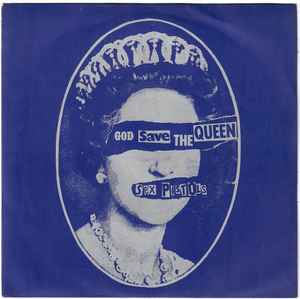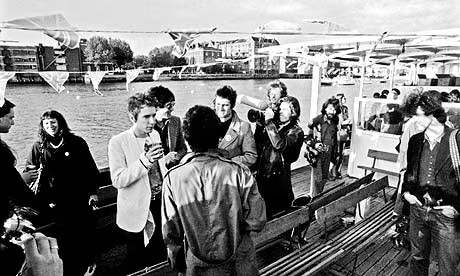Song Stories: Sex Pistols: God Save the Queen
Released in 1977 "God Save the Queen" is more than just a song, for many it is the Sex Pistols defining moment, and the greatest punk song.
A cry for a disillusioned youth of the seventies, and an attack on the old order. It is one of the most important songs ever written and recorded by a British band.
By the late 1970s, Britain was in the throes of economic turmoil. High unemployment, a battered economy, and a general sense of malaise weighed heavily on the population. For many, especially the youth, there was a sense that traditional British institutions like the monarchy, Parliament, and the church had lost touch with the people. The punk movement erupted as an outlet for this discontent, with bands like the Sex Pistols giving voice to feelings of anger, alienation, and cynicism.
The Sex Pistols, managed by the infamous Malcolm McLaren, epitomized the punk ethos. They weren’t just a band; they were a cultural force with a purpose: to provoke, to push boundaries, and to disrupt the status quo. When “God Save the Queen” was released, it did all of that and more.
“God Save the Queen” was released in May 1977, during Queen Elizabeth II’s Silver Jubilee, marking her 25 years on the throne. While Britain was gearing up for patriotic celebrations, the Sex Pistols were gearing up to challenge the very foundations of national pride. Their “God Save the Queen” was a defiant statement against what they saw as the hypocrisy of British society.

The band aimed to cause controversy with everything around the song including the cover art. Designed by Jamie Reid the artwork has become one of the most famous images in music history providing a perfect visual match for the anger, frustration, and rebellion expressed in the song.
In the song, lead vocalist Johnny Rotten (John Lydon) snarls out lyrics that declare, “God save the Queen / The fascist regime.” The lyrics criticize the monarchy as a stagnant institution that does little for the people, particularly the working class. Its message was incendiary, and it was designed to be exactly that.
The chorus, “No future, no future, no future for you!” became a rallying cry for a generation that felt abandoned and trapped. For the Sex Pistols and their fans, “no future” was more than just a slogan—it was a reflection of the grim reality they saw around them. The line struck a nerve with listeners, and to this day, it’s one of the most memorable punk refrains ever.
As one might expect, the reaction to “God Save the Queen” was swift and intense. The BBC and other radio stations banned the song, calling it “a vicious attack on the monarchy” and fearing it would incite social unrest. Retailers were hesitant to carry it, and it was reportedly banned in some stores. But rather than stifling the song’s impact, this censorship only fueled its appeal, making it a must-have for rebellious youth. The controversy surrounding “God Save the Queen” quickly elevated it to legendary status.
The band famously attempted to play the song on a boat on the River Thames, near the Houses of Parliament, during the Jubilee celebrations. This was another stunt orchestrated by McLaren, who understood that pushing boundaries and provoking authority were part of the band’s allure. The stunt was shut down by the police, but it only added to the mystique surrounding the Sex Pistols and “God Save the Queen.”

Despite its lack of official radio play and bans in many stores, “God Save the Queen” reached #2 on the UK Singles Chart—a position that many speculate was held back from #1 due to political interference. Whether or not the rumors are true, the song’s chart success was an achievement, cementing its place as an anthem for Britain’s punk movement and a hallmark of anti-establishment art.
Today, the song is celebrated as a punk rock milestone. Its impact extended far beyond music, inspiring countless other punk bands, art movements, and anti-establishment groups across the world. It was a rallying cry that showed punk was not just about loud guitars and spiked hair; it was about challenging social norms and giving voice to those who felt marginalized.
“God Save the Queen” by the Sex Pistols wasn’t just a song. It was an act of rebellion, a statement of defiance, and a warning of “no future” that still resonates. In the face of a society that, at the time, seemed set in its ways, the Sex Pistols were the voice of a generation that refused to be ignored—and they made sure of it.